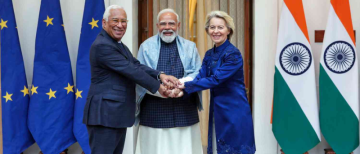The Calcutta High Court recently issued a significant ruling restricting funding to Durga Puja clubs that fail to submit utilisation reports for previous grants. This decision comes amid ongoing concerns about transparency and accountability in the use of public money allocated to thousands of Puja committees in West Bengal. The court’s order halts the release of government grants to clubs that have not provided proof of how they spent earlier funds, emphasizing the importance of proper financial reporting.

The High Court’s directive requires all clubs eligible for this year’s Durga Puja grants to submit utilisation certificates—documents detailing how the funds were spent—within one month after Bijoya Dashami, the last day of the festival. The court reminded the state government not to disburse any funds to clubs failing to meet this condition. This follows repeated orders from the court over the years stressing that grants should be contingent on transparent accounting, including a 2022 ruling that set a precedent for restricting funds unless utilisation reports are submitted on time.
In recent discussions, the Advocate General of West Bengal stated that out of nearly 42,000 clubs taking grants last year, only a few had not filed utilisation certificates, yet the court remained firm on enforcing this rule strictly. Through the Public Interest Litigation brought forward by activist Sourav Dutta and others, allegations surfaced suggesting that some clubs might be misusing funds or ignoring mandatory reporting requirements. The court asserted that it would reconsider the matter fully after the festival season but currently insists on strict compliance as a precondition for receiving financial aid.

This move resonates with a broader debate around public funding of religious and cultural events. Supporters argue that state grants help small clubs and communities host meaningful celebrations that enrich social and cultural life, especially in a festival as significant as Durga Puja in Bengal. They say that proper accounting safeguards public trust and ensures funds reach legitimate uses. Critics, meanwhile, question the use of taxpayer money for religious festivals, calling for stricter oversight and transparency to prevent any misuse.
The court’s stance highlights the balance between respecting cultural traditions and ensuring public accountability. By mandating utilisation reports, it encourages a system where clubs must demonstrate responsible spending to continue receiving support. This accountability requirement is viewed as a necessary step to foster trust both among the public and the government while preserving the festive spirit.

In conclusion, the Calcutta High Court’s decision to block funding for clubs failing to submit utilisation certificates underscores the importance of transparency in public grants. It sends a clear message that financial aid must be linked to proper reporting and scrutiny, safeguarding taxpayers’ money while supporting Bengal’s cherished Durga Puja celebrations. This stance may lead to improved governance in the management of festival funds and inspire similar measures in other states or cultural contexts where public money supports community events. The ongoing case will be revisited after the Puja holidays to assess compliance and decide future actions.
This development invites all stakeholders, including the government, cultural organisers, and citizens, to reflect on how public funds are managed and reported, ensuring that tradition and accountability go hand in hand.
With inputs from agencies
Image Source: Multiple agencies
© Copyright 2025. All Rights Reserved. Powered by Vygr Media.






















